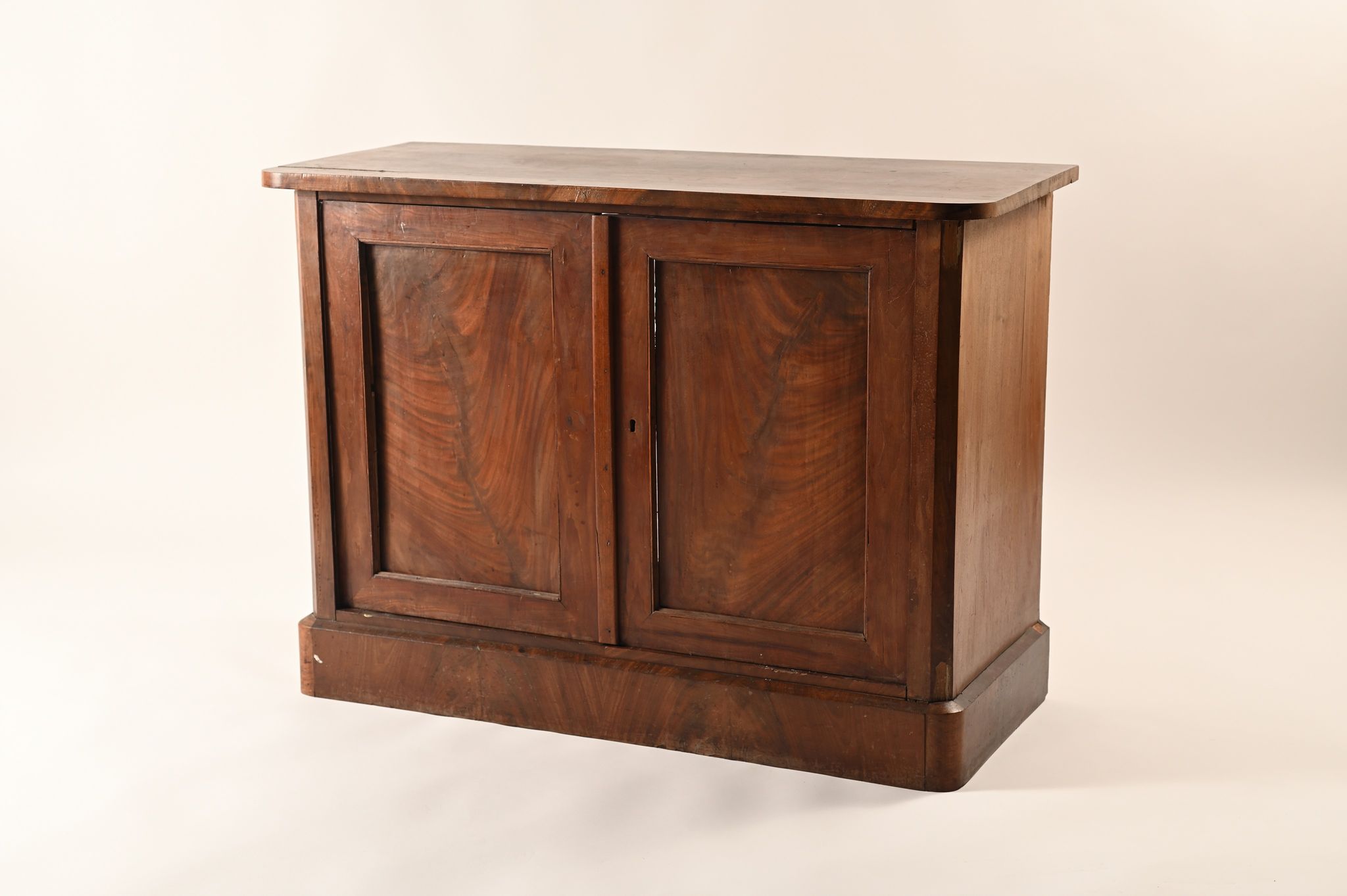
Shelf unit that hid the hiding place of Andries and Leni Hoffman
Soon after the German invasion of Holland in May 1940, the Nazis began enacting anti-Jewish legislation. In order to avoid deportation to Germany for forced labor, Andries-Asher Hoffman decided to marry his fiancé Helene (Leni) in an expedited civil ceremony. They wed in a hospital in Amsterdam where Leni had been staying for many months due to a severe intestinal illness. In February 1943, doctors advised Leni to leave, fearing that the patients in the hospital would be evacuated and sent to the Westerbork transit camp. However, shortly after returning home, Leni was arrested anyway, and deported along with her parents to Westerbork.
While at Westerbork, Leni stayed in the infirmary, where there were no supplies and conditions were harsh. From time to time, Leni's brother and Andries sent care packages to Leni and her parents with much needed food and supplies. Leni's parents wrote this in a letter they sent from Westerbork:
"You would not believe how happy we were to receive the four packages. We kept only the bread and four boxes of salmon. The rest we gave to Leni. The hospital is so full, and they have nothing there."
Against all odds, Leni was released from Westerbork along with a group of Jews whose spouses' deportation certificates had been deferred. Not long after Leni was set free, her parents were deported eastward to Sobibor, where they were murdered – as was the fate of a great proportion of Dutch Jewry.
Despite avoiding deportation, great danger still hovered over the heads of the young couple, and Andries and Leni both frantically searched for a hiding place. Aided by Reverend van der Weg, a member of the Dutch underground, they found refuge in the home of Cornelis and Amanda Petronella (van der Linden) Vissers in Bussum, some 25 km southeast of Amsterdam, arriving there in October 1943. As the Vissers had agreed to hide one Jewish woman in their home, they were initially taken aback when both Leni and Andries arrived, but quickly they agreed to hide both husband and wife, despite the enormous risk involved.
Cornelis had prepared two hiding places – one under the floor where the piano stood, and the other under a shelving unit. Inside the house, the Jewish couple roamed freely, but when searches were conducted in the area, they used the hiding places. The Germans came three times to search the house: one time Andries hid in the area under the piano and the other two times under the unit.
Amanda shopped for all the members of the household in different stores so as not to arouse suspicion. During more difficult times, she and her husband traveled long distances to get food. Cornelis even worked for a local farmer in order to increase supplies for everyone in his house.
In early 1944, Leni became pregnant. The Dutch Underground was able to obtain false identification papers so that she could give birth at a local hospital. After the birth, she returned to the Vissers with her baby daughter, whom she named Miah-Amanda, in honor of her rescuers.
The Hoffmans stayed at the Vissers until the end of the war, and for several more months afterwards. In 1948, they immigrated to the newly established State of Israel. Over the years, they continued to maintain close contact with their rescuers. In 1966, Cornelis and Amanda Vissers were recognized as Righteous Among the Nations.
Years later, Leni and Andries' son, Jonah, visited the town where his parents were hidden. While there, he was shown by the family of the Vissers the unit that had disguised the hiding place in the Vissers' home. Realizing the great value of this item as a way to tell his family's rescue story, he sought to ship the furniture piece to Israel.
In 2020 the Hoffman family donated the shelving unit to Yad Vashem, the World Holocaust Remembrance Center, for safekeeping, and in order that their story would continue to be told.
This story was written by the Artifacts Department and the assistance of the Righteous Among the Nations Department at Yad Vashem.










